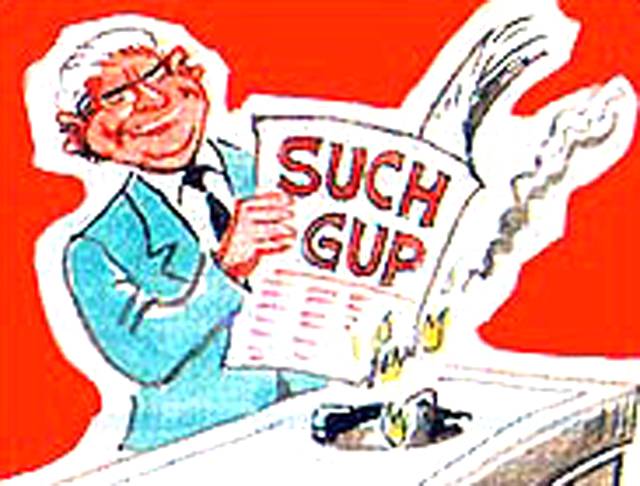
M A Jinnah remembered
Oxford educated Karan Thapar is one of India’s most celebrated broadcast and print journalists. He lives and works in Delhi. He hails from the distinguished Seth Mela Ram family of pre-Partition Punjab. The Seth and his family were benefactors of the city of Lahore and all its communities, Hindu and Muslim. Karan recently wrote about the attempt to remove Quaid-e-Azam Muhammad Ali Jinnah’s portrait from Aligarh University: “You can deny historical truths but that’s only self-deception … this is precisely what the movement led by Satish Gautam, the BJP’s Aligarh MP … against the hanging of Jinnah’s portrait in Aligarh Muslim University amounts to. It’s a myopic attempt to reverse history and deny certain truths about Mohammed Ali Jinnah. First of all, Jinnah ... was one of the most important and highly regarded members of the Congress Party, which he joined in 1906 ... In 1916, when he helped forge the Lucknow Pact, Sarojini Naidu called him ‘the Ambassador of Hindu-Muslim Unity’. In fact, the designation was possibly coined a few years earlier by Gopal Krishna Gokhale, who also considered Jinnah ‘free from any sectarian prejudice’. Indeed, it was Jinnah’s opposition to Gandhi’s Khilafat Movement that started his break with Congress. He found the intermingling of religion and politics unacceptable. Jinnah was also one of the foremost lawyers of his time. In 1908 he defended Bal Gangadhar Tilak against the charge of sedition for the first time. He did so again in 1916. The case was lost on the first occasion but spectacularly won on the second. Had Jinnah lost Tilak could have ended up in the penal colony in the Andamans. In the 1930s, when he left India, temporarily turning his back on politics, he established himself as one of the leading lawyers in London. At the time he was the only Indian to do so. In the eight decades since only a handful have been able to emulate him. This is the background against which the Students Union of Aligarh Muslim University offered him life membership in 1938. This is why his portrait hangs in their office. Yet these facts are either unknown to or foolishly ignored by Mr. Gautam … but if you want to be truthful to history they cannot be forgotten or overlooked.”

